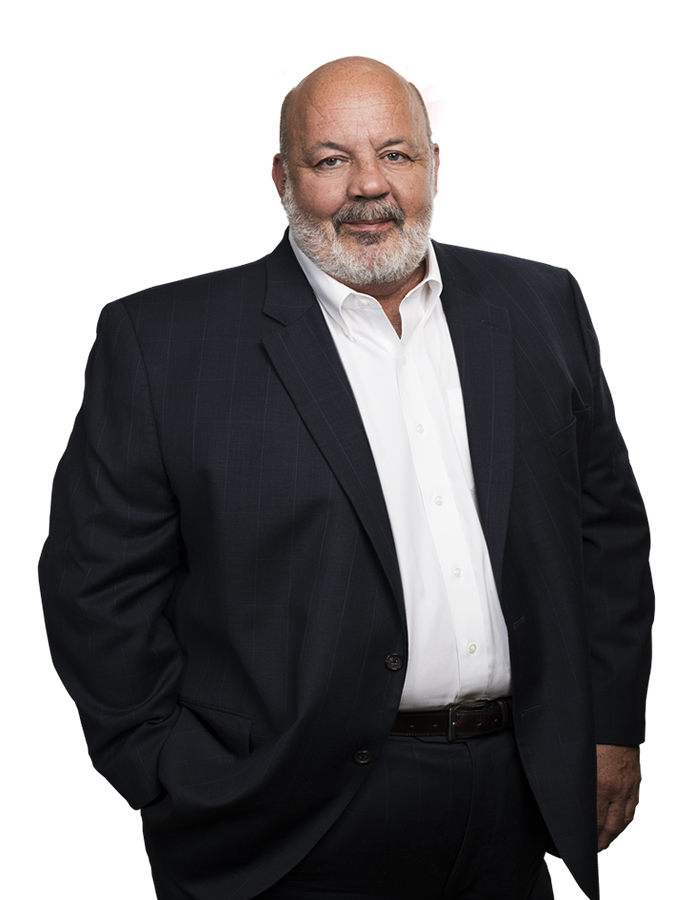- Alma J. Aguirre
- Katy Merrill Andre
- Courtney Culver Baker
- Stephen Bres
- Thomas H. Burton, III
- Giorgio “George” Caflisch
- Victor L. Cardenas Jr.
- Adam B. Chambers
- Ben Connally
- Casey Craft
- Kimberley L. Doom
- Clint Dye
- Stephanie F. Erhart
- Amanda J. Flanagan
- Dalby Fleming
- Joseph A. Garnett
- Steven O. Grubbs
- Jamie Guidry
- Christina “Tina” E. Gutierrez
- Christopher R. Jackson
- James W. Karel
- Henry C. A. List, Jr.
- Travis Livermore
- Cade Lunsford
- Dale B. McMath
- Amy Mitchell
- Dawn A. Moore
- Brent Myklebust
- Raymond A. Neuer
- Kevin Niknam
- Nancy A. Norman
- David Oh
- Christopher A. Palumbo
- George P. Pappas
- R. Edward Perkins
- Lara M. Price
- Carolyn K. Rangel
- James E. Rensimer
- Cameron D. Renton
- Richard A. Sheehy
- Wesley T. Sprague
- Brian Tagtmeier
- Jana H. Taylor
- Erik Veliz
- James L. Ware
- Ann P. Watson
- Michael P. White
- Christene Wood
- Justin T. Woods
- David A. Wright
- Michael Yanochik

Article
Are Texas Licensed Funeral Directors and Embalmers Exempt from Overtime Pay under the FLSA?
A. Introduction
The Fair Labor Standards Act (FLSA) regulates overtime pay and requires employers to pay time and a half for any time that employees work over 40 hours in one week.[1] Although the statutory framework of the FLSA is designed such that overtime compensation is the rule for all employees, there are, of course, exceptions—and therein lies the “rub.”
Under §13(a)(1) of the FLSA, four “white collar” exemptions are available and, if applicable, relieve an employer of all FLSA overtime obligations.[2] These exemptions apply when an employee’s bona fide classification is: (1) executive; (2) administrative; (3) professional; or (4) outside sales. What does and does not constitute a “professional” for FLSA exemption purposes has been of particular interest when determining if overtime is required compensation for Texas funeral directors and embalmers.
Under the old rules, funeral directors and embalmers were typically not considered “professionals” for FLSA purposes. However, as educational requirements for state licensure became more stringent, courts began to hold that funeral directors and embalmers in such states were “professionals” and therefore exempt from the FLSA’s overtime pay requirements.[3] Not surprisingly, such holdings were manifestations of what the department of labor noted in 29 C.F.R. §541.301 (f):
The areas in which the professional exemption may be available are expanding. As knowledge is developed, academic training is broadened and specialized degrees are offered in new and diverse fields, thus creating new specialists in particular fields of science or learning. When an advanced specialized degree has become a standard requirement for a particular occupation, that occupation may have acquired the characteristics of a learned profession.
In 2004, the FLSA was overhauled to better reflect these advances. This article will address (1) why Texas funeral directors and embalmers are still not likely to be considered exempt from the overtime pay requirement and (2) how appropriate use of “on call” status can be used to minimize the accumulation of overtime hours.
B. No “Professional” Status in Texas
Of the four available “white collar” exemptions provided by the FLSA, it is the “professional” exemption that is at issue for funeral directors and embalmers. In order for an employee to qualify for the exemption, the employee must meet the following “learned professional” requirements:
- compensated on a salary basis (not hourly) of at least $455/week;
- primary duty is the performance of work requiring advanced knowledge, which is predominantly intellectual in character and which requires the consistent exercise of discretion and judgment;
- this advanced knowledge must be in a field of science or learning such as law, medicine, nursing, accounting, or various types of physical, chemical, and biological sciences; and
- the advanced knowledge must be customarily acquired by a prolonged course of specialized intellectual instruction.[4]
If the above requirements are met, the employee is considered a professional for FLSA purposes and is exempt from the rule requiring overtime compensation. However, while the above requirements do provide a framework for analysis, quantifying terms such as “advanced knowledge” and “prolonged course of specialized intellectual instruction” prove somewhat illusory when applied to funeral directors and embalmers.
Fortunately, a new subsection was added which specifically addresses when funeral directors and embalmers do achieve “professional” status.[5] The subsection states:
Licensed funeral directors and embalmers who are licensed by and working in a state that requires successful completion of four academic years of pre-professional and professional study, including graduation from a college of mortuary science accredited by the American Board of Funeral Service Education, generally meets the duties requirements for the learned professional exemption.[6]
Hence, it is a state’s licensing requirements that become the decisive test for determining whether or not funeral home directors and embalmers will be considered “professionals” for FLSA exemption purposes.
1. Licensing requirements of Texas Funeral Directors and Embalmers.
In Texas, a funeral director or embalmer must meet the following requirements before obtaining a license.[7]
- be at least eighteen years of age;
- hold a high school diploma or GED;
- have graduated from an accredited school or college of mortuary science (typically a two year requirement; however, a certificate rather than a diploma, can be obtained after only one year of study);
- have served one year under the supervision and instruction of a funeral director or embalmer with a provisional license (akin to an apprenticeship); and
- have successfully passed a written examination.[8]
The Texas licensing requirements therefore demand two years of study and fall short of the four years of post secondary education required under the new subsection. Stated another way, while the FLSA has been adapted to allow some states’ funeral directors and embalmers to be considered “learned professionals,” Texas’ standards have not yet been “sufficiently broadened” to reflect the necessity of “an advanced specialized degree.” Accordingly, funeral directors and embalmers in Texas are not “learned enough” to qualify for the exemption. For funeral directors to qualify as learned professionals, The legislature would be required to increase the licensure requirements.
C. Time On-Call & Overtime
Although overtime is still required in Texas, time spent “on-call,” if properly structured, should not accrue to overtime. The Department of Labor requires overtime pay for time spent on-call only when an employee is required to remain on call at the employer’s premises or so close thereto that he cannot use the time effectively for his own purposes.[9] Hence, the critical question is whether or not the employee can use on-call time effectively for his or her own purposes.[10] Furthermore, it is usually employees that have almost no freedom at all who are entitled to receive compensation for idle time.[11]
The Sixth Circuit considered this issue in the context of a funeral director’s claim for on-call compensation in Rutlin v. Prime Succession.[12] The facts in Rutlin showed that the funeral director was:
- expected to remain at home while on call;
- required to answer the funeral home’s calls that were forwarded to his house (averaging fifteen to twenty calls per night requiring approximately one hour per night on the phone);
- usually able to switch call shifts;
- provided a pager to allow him to leave his home if desired; and
- able to engage in personal activities such as watching television, computing, visiting with friends, and going out to dinner.[13]
Despite the funeral director’s claims that his being on-call prevented him from “drinking alcohol, visiting his children, or boating” and that “his meals, evening activities, and sleep were disrupted by his on-call duties,” the Sixth Circuit found that the time spent on fifteen to twenty phone calls was compensable time, but that all other on-call time was not.[14]
Likewise, in Offutt v. Southwestern Bell, the Dallas Court of Appeals considered the issue and stated that:
[The on-call plaintiff] was able to attend movies, spend time at home, and eat dinner at restaurants. These activities were subject to possible interruption, but the interruptions were no so frequent that they prevented [plaintiff] from effectively engaging in the personal activities. As the Fifth Circuit has noted, the ability for an employee to use on-call time effectively for personal purposes does not mean that the employee ‘must have substantially the same flexibility or freedom as he would if not on call.’ Additionally, [plaintiff] was not confined to a certain location while on call.[15]
Hence, where a funeral director or embalmer is on-call, any idle time spent on-call is generally not compensable and will not accrue to overtime provided that the employees own purposes are not thwarted entirely, though they may be interrupted. Time actually spent working, as opposed to waiting, would be compensable time.
D. Conclusion
The FLSA, as recently revised, provides that funeral directors and embalmers working in states with sufficient licensing requirements are considered “learned professionals” and are therefore exempt from the FLSA’s overtime requirements. However, funeral directors and embalmers working in Texas do not fall into the exemption due to Texas’ less stringent licensing requirements. As such, overtime pay is required for Texas funeral home directors and embalmers, but proper use of on-call time can be used to limit the accrual of overtime pay.
For more information about this article, feel free to contact Mr. Steve Grubbs at 713-951-1014, or via email at [email protected]. Mr. Grubbs regularly practices funeral home and funeral directing law in Texas. He is Board Certified by the Texas Board of Legal Specialization in Labor and Employment Law. This article is not intended to provide legal advice or establish an attorney client relationship. Mr. Grubbs gratefully acknowledges the drafting and editorial assistance of Tamara Ruen and William Whitaker. Ms. Ruen and Mr. Whitaker are associate attorneys at Sheehy, Serpe & Ware, P.C.
[1] Fair Labor Standards Act of 1938, 29 USC §201-219.
[2] Id. at §213(a)(1).
[3] Rutlin v. Prime Succession, Inc., 220 F.3d 737 (6th Cir., 2000); Szarnych v. Theis-Gorski Funeral Home, Inc., No. 97-3069, 1998 WL 382891, at *1 (7th Cir., 1998); see Owsley v. San Antonio Indep. Sch. Dist., 187 F.3d 521, 524 (5th Cir. 1999), cert. denied, 529 U.S. 1020, 120 S.Ct. 1423, 146 L.Ed2d 314 (2000).
[4] 29 C.F.R. §§ 541.300 – 541.301
[5] Id. at §541.301(e)(9)
[6] Id. (emphasis added) (while an argument may exist that the new subsection does not definitively establish four years of pre-professional and professional study as a requirement, the Department of Labor has stated that it “recognizes” that some employees with the job title of ‘funeral director’ or ’embalmer’ have not completed the four years of post-secondary education required in final subsection 541.301(d)(9) and that “such employees cannot qualify as exempt learned professionals.” Defining and Delimiting the Exemptions for Executive, Administrative, Professional, Outside Sales and Computer Employees; Final Rule, Department of Labor, Wage and Hour Division, Volume 69, Number 79, Pages 22121-22274, at http://www.dol.gov/esa/regs/fedreg/final/2004009016.htm).
[7] Tex. Occ. Code §651.253.
[8] Tex. Occ. Code §651.253(a)(1)-(5).
[9] 29 C.F.R. §785.17.
[10] Offutt v. Southwestern Bell Internet Services, Inc., 130 S.W.3d 507, 510 (Tex. App.—Dallas 2004, no pet.); Bright v. Houston Northwest Med. Ctr. Survivor, Inc., 934 F.2d 671, 677 (5th Cir. 1991).
[11] Halferty v. Pulse Drug Co., 864 F.2d 1185, 1190 (5th Cir. 1989).
[12] Rutlin, 220 F.3d at 737.
[13] Id. at 744.
[14] Id.
[15] Offutt, 130 S.W.3d at 511 (quoting Bright, 934 F.2d at 677).
A. Introduction
The Fair Labor Standards Act (FLSA) regulates overtime pay and requires employers to pay time and a half for any time that employees work over 40 hours in one week.[1] Although the statutory framework of the FLSA is designed such that overtime compensation is the rule for all employees, there are, of course, exceptions—and therein lies the “rub.”
Under §13(a)(1) of the FLSA, four “white collar” exemptions are available and, if applicable, relieve an employer of all FLSA overtime obligations.[2] These exemptions apply when an employee’s bona fide classification is: (1) executive; (2) administrative; (3) professional; or (4) outside sales. What does and does not constitute a “professional” for FLSA exemption purposes has been of particular interest when determining if overtime is required compensation for Texas funeral directors and embalmers.
Under the old rules, funeral directors and embalmers were typically not considered “professionals” for FLSA purposes. However, as educational requirements for state licensure became more stringent, courts began to hold that funeral directors and embalmers in such states were “professionals” and therefore exempt from the FLSA’s overtime pay requirements.[3] Not surprisingly, such holdings were manifestations of what the department of labor noted in 29 C.F.R. §541.301 (f):
The areas in which the professional exemption may be available are expanding. As knowledge is developed, academic training is broadened and specialized degrees are offered in new and diverse fields, thus creating new specialists in particular fields of science or learning. When an advanced specialized degree has become a standard requirement for a particular occupation, that occupation may have acquired the characteristics of a learned profession.
In 2004, the FLSA was overhauled to better reflect these advances. This article will address (1) why Texas funeral directors and embalmers are still not likely to be considered exempt from the overtime pay requirement and (2) how appropriate use of “on call” status can be used to minimize the accumulation of overtime hours.
B. No “Professional” Status in Texas
Of the four available “white collar” exemptions provided by the FLSA, it is the “professional” exemption that is at issue for funeral directors and embalmers. In order for an employee to qualify for the exemption, the employee must meet the following “learned professional” requirements:
- compensated on a salary basis (not hourly) of at least $455/week;
- primary duty is the performance of work requiring advanced knowledge, which is predominantly intellectual in character and which requires the consistent exercise of discretion and judgment;
- this advanced knowledge must be in a field of science or learning such as law, medicine, nursing, accounting, or various types of physical, chemical, and biological sciences; and
- the advanced knowledge must be customarily acquired by a prolonged course of specialized intellectual instruction.[4]
If the above requirements are met, the employee is considered a professional for FLSA purposes and is exempt from the rule requiring overtime compensation. However, while the above requirements do provide a framework for analysis, quantifying terms such as “advanced knowledge” and “prolonged course of specialized intellectual instruction” prove somewhat illusory when applied to funeral directors and embalmers.
Fortunately, a new subsection was added which specifically addresses when funeral directors and embalmers do achieve “professional” status.[5] The subsection states:
Licensed funeral directors and embalmers who are licensed by and working in a state that requires successful completion of four academic years of pre-professional and professional study, including graduation from a college of mortuary science accredited by the American Board of Funeral Service Education, generally meets the duties requirements for the learned professional exemption.[6]
Hence, it is a state’s licensing requirements that become the decisive test for determining whether or not funeral home directors and embalmers will be considered “professionals” for FLSA exemption purposes.
1. Licensing requirements of Texas Funeral Directors and Embalmers.
In Texas, a funeral director or embalmer must meet the following requirements before obtaining a license.[7]
- be at least eighteen years of age;
- hold a high school diploma or GED;
- have graduated from an accredited school or college of mortuary science (typically a two year requirement; however, a certificate rather than a diploma, can be obtained after only one year of study);
- have served one year under the supervision and instruction of a funeral director or embalmer with a provisional license (akin to an apprenticeship); and
- have successfully passed a written examination.[8]
The Texas licensing requirements therefore demand two years of study and fall short of the four years of post secondary education required under the new subsection. Stated another way, while the FLSA has been adapted to allow some states’ funeral directors and embalmers to be considered “learned professionals,” Texas’ standards have not yet been “sufficiently broadened” to reflect the necessity of “an advanced specialized degree.” Accordingly, funeral directors and embalmers in Texas are not “learned enough” to qualify for the exemption. For funeral directors to qualify as learned professionals, The legislature would be required to increase the licensure requirements.
C. Time On-Call & Overtime
Although overtime is still required in Texas, time spent “on-call,” if properly structured, should not accrue to overtime. The Department of Labor requires overtime pay for time spent on-call only when an employee is required to remain on call at the employer’s premises or so close thereto that he cannot use the time effectively for his own purposes.[9] Hence, the critical question is whether or not the employee can use on-call time effectively for his or her own purposes.[10] Furthermore, it is usually employees that have almost no freedom at all who are entitled to receive compensation for idle time.[11]
The Sixth Circuit considered this issue in the context of a funeral director’s claim for on-call compensation in Rutlin v. Prime Succession.[12] The facts in Rutlin showed that the funeral director was:
- expected to remain at home while on call;
- required to answer the funeral home’s calls that were forwarded to his house (averaging fifteen to twenty calls per night requiring approximately one hour per night on the phone);
- usually able to switch call shifts;
- provided a pager to allow him to leave his home if desired; and
- able to engage in personal activities such as watching television, computing, visiting with friends, and going out to dinner.[13]
Despite the funeral director’s claims that his being on-call prevented him from “drinking alcohol, visiting his children, or boating” and that “his meals, evening activities, and sleep were disrupted by his on-call duties,” the Sixth Circuit found that the time spent on fifteen to twenty phone calls was compensable time, but that all other on-call time was not.[14]
Likewise, in Offutt v. Southwestern Bell, the Dallas Court of Appeals considered the issue and stated that:
[The on-call plaintiff] was able to attend movies, spend time at home, and eat dinner at restaurants. These activities were subject to possible interruption, but the interruptions were no so frequent that they prevented [plaintiff] from effectively engaging in the personal activities. As the Fifth Circuit has noted, the ability for an employee to use on-call time effectively for personal purposes does not mean that the employee ‘must have substantially the same flexibility or freedom as he would if not on call.’ Additionally, [plaintiff] was not confined to a certain location while on call.[15]
Hence, where a funeral director or embalmer is on-call, any idle time spent on-call is generally not compensable and will not accrue to overtime provided that the employees own purposes are not thwarted entirely, though they may be interrupted. Time actually spent working, as opposed to waiting, would be compensable time.
D. Conclusion
The FLSA, as recently revised, provides that funeral directors and embalmers working in states with sufficient licensing requirements are considered “learned professionals” and are therefore exempt from the FLSA’s overtime requirements. However, funeral directors and embalmers working in Texas do not fall into the exemption due to Texas’ less stringent licensing requirements. As such, overtime pay is required for Texas funeral home directors and embalmers, but proper use of on-call time can be used to limit the accrual of overtime pay.
For more information about this article, feel free to contact Mr. Steve Grubbs at 713-951-1014, or via email at [email protected]. Mr. Grubbs regularly practices funeral home and funeral directing law in Texas. He is Board Certified by the Texas Board of Legal Specialization in Labor and Employment Law. This article is not intended to provide legal advice or establish an attorney client relationship. Mr. Grubbs gratefully acknowledges the drafting and editorial assistance of Tamara Ruen and William Whitaker. Ms. Ruen and Mr. Whitaker are associate attorneys at Sheehy, Serpe & Ware, P.C.
[1] Fair Labor Standards Act of 1938, 29 USC §201-219.
[2] Id. at §213(a)(1).
[3] Rutlin v. Prime Succession, Inc., 220 F.3d 737 (6th Cir., 2000); Szarnych v. Theis-Gorski Funeral Home, Inc., No. 97-3069, 1998 WL 382891, at *1 (7th Cir., 1998); see Owsley v. San Antonio Indep. Sch. Dist., 187 F.3d 521, 524 (5th Cir. 1999), cert. denied, 529 U.S. 1020, 120 S.Ct. 1423, 146 L.Ed2d 314 (2000).
[4] 29 C.F.R. §§ 541.300 – 541.301
[5] Id. at §541.301(e)(9)
[6] Id. (emphasis added) (while an argument may exist that the new subsection does not definitively establish four years of pre-professional and professional study as a requirement, the Department of Labor has stated that it “recognizes” that some employees with the job title of ‘funeral director’ or ’embalmer’ have not completed the four years of post-secondary education required in final subsection 541.301(d)(9) and that “such employees cannot qualify as exempt learned professionals.” Defining and Delimiting the Exemptions for Executive, Administrative, Professional, Outside Sales and Computer Employees; Final Rule, Department of Labor, Wage and Hour Division, Volume 69, Number 79, Pages 22121-22274, at http://www.dol.gov/esa/regs/fedreg/final/2004009016.htm).
[7] Tex. Occ. Code §651.253.
[8] Tex. Occ. Code §651.253(a)(1)-(5).
[9] 29 C.F.R. §785.17.
[10] Offutt v. Southwestern Bell Internet Services, Inc., 130 S.W.3d 507, 510 (Tex. App.—Dallas 2004, no pet.); Bright v. Houston Northwest Med. Ctr. Survivor, Inc., 934 F.2d 671, 677 (5th Cir. 1991).
[11] Halferty v. Pulse Drug Co., 864 F.2d 1185, 1190 (5th Cir. 1989).
[12] Rutlin, 220 F.3d at 737.
[13] Id. at 744.
[14] Id.
[15] Offutt, 130 S.W.3d at 511 (quoting Bright, 934 F.2d at 677).















































